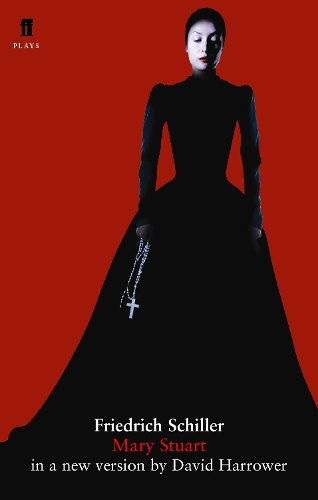
Mary Stuart
(Paperback, Main)
Available Formats
Paperback
Published: 7th May 2009
Paperback, Main
Published: 1st January 2007
Paperback
Published: 23rd October 1998
Publishing Details
Mary Stuart
By (Author) Friedrich Schiller
Translated by David Harrower
Faber & Faber
Faber & Faber
1st January 2007
Main
United Kingdom
Classifications
General
Non Fiction
822.914
Physical Properties
Paperback
128
Width 126mm, Height 198mm, Spine 10mm
138g
Description
Ranking alongside Goethe as a central figure in the golden age of German literature, Friedrich Schiller (1759-1805) built this superb drama around conflict - and fictitious confrontation - between Elizabeth I and Mary, Queen of Scots.
Schiller was profoundly shaken by the failure of the French Revolution and devoted many of his greatest works to debating the true nature of freedom. Here, in scenes alternating between the palace of Westminster and the prison at Fotheringhay, he shows us a captive heroine rising above her suffering to gain in insight and spiritual depth. The deceitful and indecisive Elizabeth, trapped by the cruel demands of Realpolitik, can achieve worldly victory only at a terrible moral cost. Schiller's early plays are full of violent actions and language, but he later adopted a far more restrained and formal style to try and capture the emotional essence of complex events. Perhaps more than any of his other tragedies, Mary Stuart achieves a perfect balance between the 'classical', 'Shakespearean' and 'romantic' elements of his genius.
Author Bio
David Harrower's plays include Knives in Hens, Kill the Old, Torture Their Young, Dark Earth (Traverse Theatre), Presence (Royal Court) The Chrysalids (NT Connections), Blackbird (Edinburgh International Festival; West End), A Slow Air (Tron Theatre, Glasgow), The Prime of Miss Jean Brodie, adapted from the novel by Muriel Spark, (Donmar). Adaptations include Bchner's Woyzeck (Edinburgh Lyceum), Chekhov's Ivanov and Horvth's Tales from the Vienna Woods (National Theatre), Schiller's Mary Stuart (National Theatre of Scotland), and Pirandello's Six Characters in Search of an Author, Brecht's The Good Soul of Szechuan and Gogol's The Government Inspector (Young Vic). Film credits: Una; Outlaw King.
